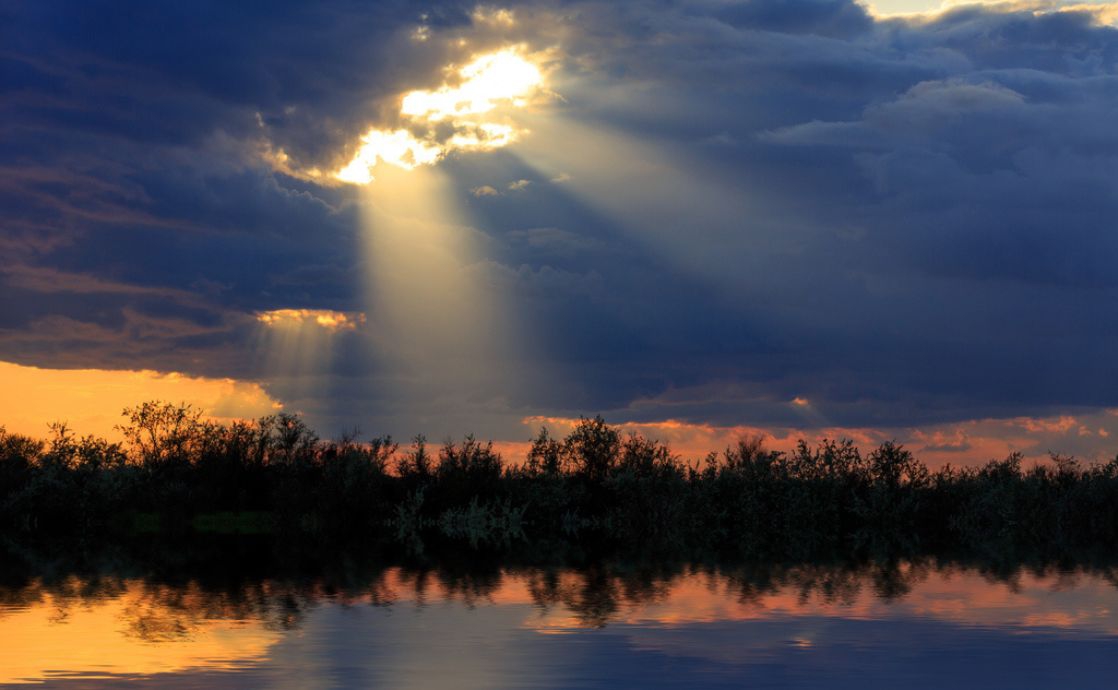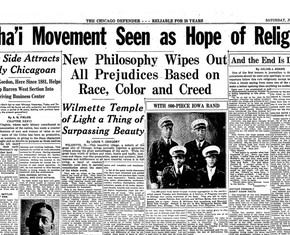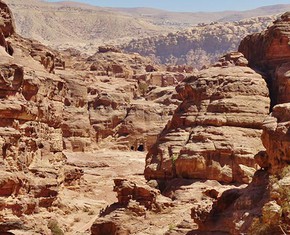The views expressed in our content reflect individual perspectives and do not represent the authoritative views of the Baha'i Faith.
The gentle breeze from the Tigris river, that love-laden air, pregnant with the melodic tone of acquiescence like the sweet-smelling zephyr wafting from Sheba, carries the glad tidings of the Beloved.
An awakened soul, standing near or a thousand miles away, can hear the river’s mesmerizing joy and the murmur of jubilation from its not-so-distant days.
Yes, the river still has tales to tell — tales from those glorious days of thrill and spiritual renewal. Those days of light and energy permeate every drop of its flowing water, every atom of earth on its banks.
RELATED: Why Do Prophets Seek Refuge in the Wilderness?
What did the Tigris witness to bring this exhilaration into its telling? The reverberations of the footsteps of the Glory of God, Baha’u’llah, might still be sensed along that river. Pacing on the riverbank and wrapt in his meditation in 1858, Baha’u’llah revealed words like these, clothed with ancient wisdom, instilled with divine guidance to usher the soul to everlasting peace:
O Son of Spirit! With the joyful tidings of light I hail thee: rejoice! To the court of holiness I summon thee; abide therein that thou mayest live in peace forevermore.
There, Baha’u’llah revealed a gem-like collection known as The Hidden Words. Those holy words invite all to enter into the domain of love.
Baha’u’llah, the prophet and founder of the Baha’i Faith, introduced The Hidden Words by saying:
This is that which hath descended from the Realm of Glory, uttered by the tongue of power and might, and revealed unto the Prophets of old. We have taken the inner essence thereof and clothed it in the garment of brevity, as a token of grace unto the righteous …
Shoghi Effendi, the Guardian of the Baha’i Faith, called that wondrous book of lofty aphorisms a “… marvelous collection of gem-like utterances,” characterizing it as a “spiritual leaven cast into the life of the world for the reorientation of the minds of men, the edification of their souls and the rectification of their conduct …”
How vividly the river recalls the words of this spiritual leaven:
Thy Paradise is My love; thy heavenly home, reunion with Me. Enter therein and tarry not. This is that which hath been destined for thee in Our kingdom above and Our exalted dominion.
How could the river let go of this wisdom revealed where the land met its water?: “In the garden of thy heart plant naught but the rose of love, and from the nightingale of affection and desire loosen not thy hold.”
How could the river forget those most sublime moments when Baha’u’llah uttered:
The candle of thine heart is lighted by the hand of My power, quench it not with the contrary winds of self and passion. The healer of all thine ills is remembrance of Me, forget it not. Make My love thy treasure and cherish it even as thy very sight and life.
Ever since the days of the presence of Baha’u’llah on its bank, the Tigris has basked in distinction and awe. Millions have become aware of its association with this new divine revelation, and its name has been carved once more into the Book of Creation.
This most cherished, precious remembrance, a tale of divine splendor and grandeur, never fades in the river’s heart — on one most delightful spring day in 1863, the river heard the commotion of a multitude. Agitated and vexed, crowds of ordinary people, streaming out of their dwellings, had lined streets and alleys, climbed onto roofs, and packed the avenues leading to the Tigris. How strange. What was going on? And why the wailing? Why the lamenting?
On that April day, Baha’u’llah, whom they felt they could not live without, left his house in Baghdad for the last time and walked towards the river. The people who occupied the land that had harnessed the fruits of Baha’u’llah’s presence, who lived among the plains, the mountains, the trees, and the rivers, all bemoaned their loss on the day of his departure. Why he was leaving was the question on everyone’s mind.
Baha’u’llah, after announcing his new revelation, would leave forever, exiled by his own government for declaring his new Faith. Opponents could not withstand his exposition of truth or bear the spiritual revival and tolerate the wafting breeze of the fresh spring. Thus, they banished him to another land.
Baha’u’llah had lived in Baghdad for more than a decade, associating with people of all ranks. His admirers and followers, whose numbers against all opposition had swelled, found great joy and spiritual sustenance while living in the same terrain with their Beloved and had taken to heart that magnificent love letter from God, that spiritual treasure book The Hidden Words, as well as a plethora of his other writings.
But today, as he departed, the gloom of separation enveloped the city of Baghdad, and the moth-like lovers grieved and withered in pain. Despair visited them.
However, the river was about to receive another favor from the Baha’u’llah on that day, an indulgence treasured above all others in its book of tales. Baha’u’llah, on his way to the Garden of Ridvan, would cross the river and, in that rose-fragrant garden, declare his mission to his followers.
Perhaps the river understood that this was the last time Baha’u’llah would glance at its shimmering ripples, so maybe a dance of joy and sorrow began in its heart, an interplay of gain and loss. The sigh of the river echoed in the universe when the boat reached the east side of its bank. Thus came to an end the River’s gaze on Baha’u’llah’s countenance.
RELATED: Swimming in the River of Religion
Humbled by the sacredness of its banks trodden by Baha’u’llah’s footsteps and cherishing the memories of those glorious days in its heart, the Tigris basks in the honor of being referred to in Baha’u’llah’s Tablet of the River, where he describes the power and sovereignty of the Cause of God, comparing its progress with the flow of the Tigris, and using the analogy of a river to explain that God’s bounty is shared among creation equally: “We have caused the rivers of Divine utterance to proceed out of our throne, that the tender herbs of wisdom and understanding may spring forth from the soil of your heart.”
Years have passed since the days when Baha’u’llah graced the banks of the Tigris River with his new revelation. But neither the river nor any other being forgets these lasting words from one who consented to bear all sufferings to enable us to remove sorrows from our hearts and to attain abiding joy:
Abandon not for that which perisheth an everlasting dominion, and cast not away celestial sovereignty for a worldly desire. This is the river of everlasting life that hath flowed from the wellspring of the pen of the merciful; well is it with them that drink!
















Comments
Sign in or create an account
Continue with Googleor